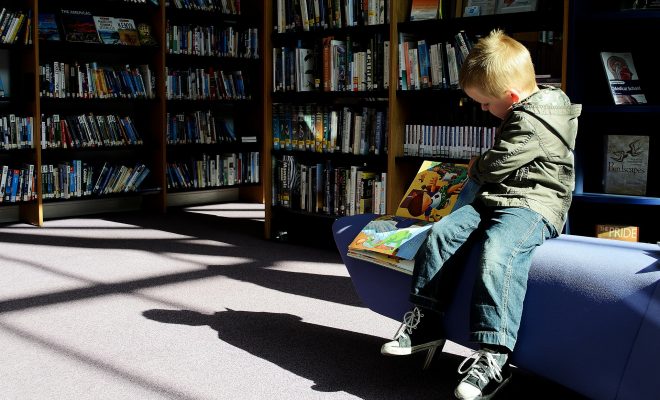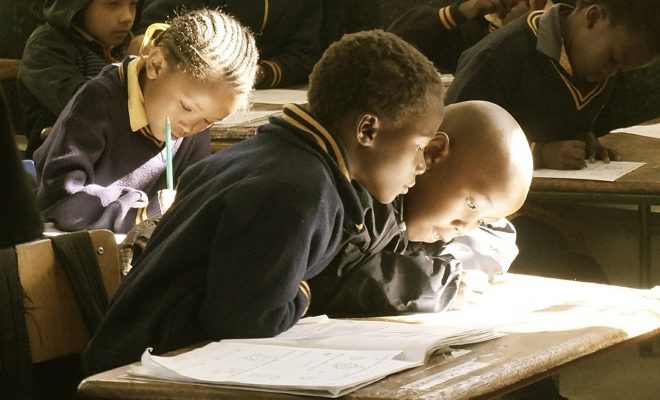Pass or Fail: Implementing Early Literacy Interventions

In this multi-part series, I provide a dissection of the phenomenon of retention and social promotion. Also, I describe the many different methods that would improve student instruction in classrooms and eliminate the need for retention and social promotion if combined effectively.
While reading this series, periodically ask yourself this question: Why are educators, parents and the American public complicit in a practice that does demonstrable harm to children and the competitive future of the country?
What type of interventions would you want provided to your child if they were struggling with early literacy? Based on the state you live in, various early interventions are not only offered, but in some cases required.
Colorado leads the way for early literacy interventions and a 2014 follow-up study was conducted to evaluate progress. Colorado’s READ Act and mandated Response to Intervention (RtI), which was especially concerned with students who had learning disabilities, showed that the initiatives focused on literacy did have a dramatic effect.
Colorado had intentionally moved the initiatives out of the realm of special education. As Dr. Ed Steinberg, former Assistant Commissioner and State Director of Special Education, explains: “We took bold action, but knew from the beginning that for RtI to be effective on a larger scale, it could not ‘live’ in special education. Instead, it had to be seen as integral to improving student achievement.” In other words, the focus encompassed the entire educational system, and literacy and retentions were better incorporated into a comprehensible structure based on defined principles.
Six states – Delaware, Colorado, Florida, Iowa, Maryland, and Missouri – allow exemptions for literacy levels, and these exemptions apply to students who have already been retained based on reading deficiencies alone. In North Carolina, a student can be exempt from retention for the third time. Eleven states exempt special needs students. Seven exempt English language learners or those who are not fully proficient in English.
Some states bypass state assessments and go with local ones to determine reading proficiency. Those states include Maryland, Missouri, Vermont, and Virginia, which only test students in literacy in or after third grade. Since most testing begins in third grade, we have to keep in mind that there is a missed opportunity for early identification of children with learning issues. Retention is not effective in increasing learning if the ability is absent, or other outside factors are strongly impacting the individual student’s learning potential. By contrast, Arizona and Florida test students beginning at pre-kindergarten.
Many states have recommended interventions specifically aimed at reading, to try to avoid retention on the basis of reading issues. Specific interventions vary by state, however, and there are even differences regarding the number of interventions required before retention is allowed. Some states require the use of up to four interventions. Connecticut, for example, tries to minimize retention by requiring the use of a certain number of interventions first, before educators can consider retention. Idaho requires instruction outside of normal school hours as the only specified intervention. Arizona and Florida, however, are the only states so far to enforce annual reading assessments for prekindergarten to third grade. The idea behind this approach is that initial assessments might help identify those who are struggling early on to receive prompt assistance.
Mandated reading assessments are commonplace among the states. The District of Columbia, Georgia, Iowa, Louisiana, Kentucky, Minnesota, North Carolina, New Mexico, North Dakota, Oklahoma, Texas, Utah, Washington, Wisconsin, and Wyoming have annual reading assessments from kindergarten to third grade. Idaho, Ohio, and South Carolina have opted for assessments from first to third grade; California from second to third; Delaware, Maryland, Montana, New York, Rhode Island, Tennessee, Vermont, Virginia, and West Virginia have reading assessments for third grade. New York and Rhode Island opt to screen students before entry to school. Again, the goal is to assess reading skills up front and thus establish reasonable expectations, targeting struggling students early on.
Fifteen states require supplemental reading instruction during regular school hours, and another three recommend it. Six states require summer school as a means of literacy intervention, and eleven states, plus the District of Columbia, just recommend it. Five states require academic improvement plans (AIPs) for struggling readers. Five states require parental involvement in choosing intervention strategies, and the District of Columbia is making this a recommendation. Eleven states and D.C. recommend individual or group tutoring as an intervention and North Carolina requires it, again as a means of actively trying to prevent retention being necessary for struggling students. Since these policies demand that the school districts or the state education departments provide the resources, including tutoring resources, the benefits should not be overlooked.
Eight states also require instruction tailored specifically to student deficiencies. Two states, plus D.C., also recommend tailored instruction. Arizona requires online or computer-based instruction, and three states recommend it. Three states also require assignment to a different teacher if retention takes place. Ohio and D.C. recommend this strategy as well.
If you’re the parent of a student who struggles with literacy, you no doubt want as many interventions offered to them as possible. Do you feel honing in on concerns early on will allow more students the chance to improve enough for grade level mastery?





